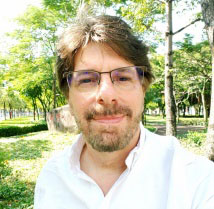This article is part of a series on researchers who have have joined the global fight against COVID-19 after receiving $1.9 million from the (CIHR) as part of the Novel Coronavirus Rapid Research Funding Opportunity (announced March 6, 2020). Learn more about how one of these researchers, Dr. Â David Kelvin, is developing a device that can quickly indicate the severity of the illness.
 The researcher: Dr. David Kelvin
The researcher: Dr. David Kelvin
The biography: A professor in the Faculty of Medicine, Dr. Kelvin has an internationally based research program and carries out studies in Shantou, China, Sardinia, Italy, and Canada. His central research programs include Ancient Pathogens, Cancer and Infectious Disease, and Emerging and Re-emerging Infectious Diseases.
In addition, Dr. Kelvin and several international colleagues established the Journal of Infection in Developing Countries (JIDC), an open-access journal devoted to infectious diseases in resource limited countries.
The project: Identification of biomarkers that predict severity of COVID-19 patients.
One of the major concerns with outbreaks like COVID-19 is overwhelmed emergency rooms, hospitals and ICU wards. Dr. Kelvin is developing a point-of-care device that can be used by emergency room doctors to quickly predict whether someone presenting with the disease will have a mild or severe case.
This is part of an international effort to find a set of biomarkers and gene expression assessment of COVID-19 patients. The data from these screenings will be used to determine which biomolecules are associated with mild, severe and critically ill patients.
Dr. Kelvin’s research is being conducted through the Canadian COVID-19 Research Network, which includes researchers from China, Vietnam, Spain, Italy, Morocco, Sudan, Egypt, Ethiopia, Cote D’Ivoire, Mozambique, the U.S. and Canada.
The impact: This innovation could be a vital asset in the delivery of care at emergency rooms and ICUs, and allow doctors to immediately direct patients to the appropriate unit.
“We’re part of an enormous global scientific effort going on right now. It’s one of those situations where you have to draw on the expertise of many people, and you need their expertise NOW. The amazing thing is, we have a collection of brilliant people here at Dal and many other universities around the world who are willing to help.”
The update: Since the CIHR funding was announced, Research Nova Scotia contributed an additional $600,000 to Dr. Kelvin’s project, and AVľăŔÖ˛ż Medical Research Foundation made a $250,000 gift and put out a call to donors and the public to give if they wish to or can (visit ). This will further enable his team of researchers to scale up their work quickly. here.
Watch:

